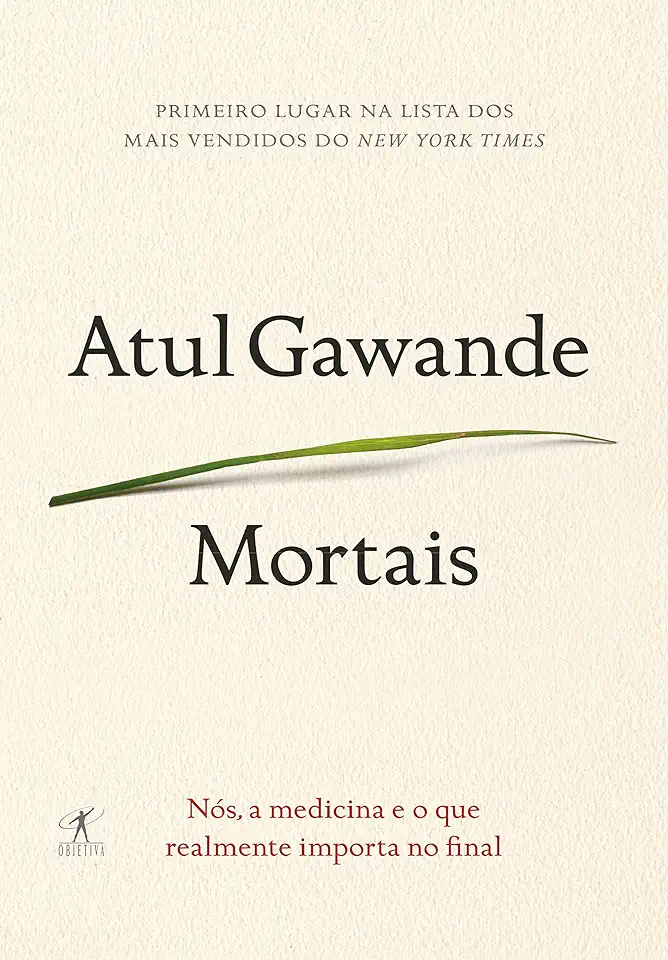
Being Mortal: Medicine and What Matters in the End
Being Mortal: Medicine and What Matters in the End
In his book "Being Mortal: Medicine and What Matters in the End," Atul Gawande, a renowned surgeon and writer, explores the complex relationship between medicine and mortality. Drawing from his personal experiences as a physician and the stories of his patients, Gawande argues for a more humane approach to end-of-life care that focuses on quality of life rather than prolonging life at all costs.
Understanding Mortality
Gawande begins by examining the way in which modern medicine has transformed the experience of dying. Advances in medical technology have allowed us to extend life expectancy and cure diseases that were once fatal. However, this has also led to a situation where many people now die in hospitals or nursing homes, often after prolonged periods of suffering.
Gawande argues that this medicalized approach to death is often at odds with what people actually want. He cites studies that show that most people prefer to die at home, surrounded by loved ones, and with a sense of control over their final days. However, the reality is that many people end up dying in institutions, often alone and in pain.
The Challenges of End-of-Life Care
Gawande identifies several challenges that make it difficult to provide good end-of-life care. One challenge is the fact that death is often seen as a failure of medicine. Doctors are trained to save lives, and they may feel uncomfortable or inadequate when they are unable to do so. This can lead to a reluctance to talk about death with patients or to provide them with the information they need to make informed decisions about their care.
Another challenge is the fact that end-of-life care is often fragmented and poorly coordinated. Patients may see multiple doctors and specialists, and they may receive conflicting advice about their treatment options. This can make it difficult for patients to understand their condition and to make decisions about their care.
A More Humane Approach to End-of-Life Care
Gawande argues for a more humane approach to end-of-life care that focuses on quality of life rather than prolonging life at all costs. He suggests several ways to improve end-of-life care, including:
- Encouraging doctors to talk about death with patients. Doctors should be open and honest with patients about their prognosis and their treatment options. They should also help patients to understand what to expect in the final stages of their illness.
- Providing patients with more control over their care. Patients should be given the opportunity to make decisions about their own care, including where they want to die and what kind of treatment they want to receive.
- Improving coordination of end-of-life care. Doctors, nurses, and other healthcare professionals should work together to ensure that patients receive the care they need. They should also communicate regularly with patients and their families to keep them informed about the patient's condition and to address any concerns they may have.
Gawande's book is a powerful and moving exploration of the complex relationship between medicine and mortality. He offers a compelling argument for a more humane approach to end-of-life care that focuses on quality of life rather than prolonging life at all costs. This book is a must-read for anyone who is interested in improving the way we care for the dying.
Why You Should Read This Book
"Being Mortal" is a thought-provoking and important book that will change the way you think about death and dying. Gawande's writing is clear, compassionate, and engaging, and he does an excellent job of weaving together personal stories, medical research, and philosophical insights. This book is a must-read for anyone who is interested in living a good life and dying a good death.
Here are a few reasons why you should read "Being Mortal":
- It will help you to understand the complex relationship between medicine and mortality. Gawande explores the way in which modern medicine has transformed the experience of dying, and he argues for a more humane approach to end-of-life care.
- It will give you the tools you need to make informed decisions about your own end-of-life care. Gawande provides practical advice on how to talk to your doctor about death, how to choose a place to die, and how to make sure that your wishes are respected.
- It will help you to live a more meaningful life. By understanding the inevitability of death, you can learn to appreciate the preciousness of life and to make the most of every moment.
"Being Mortal" is a powerful and important book that will change the way you think about death and dying. It is a must-read for anyone who is interested in living a good life and dying a good death.
Enjoyed the summary? Discover all the details and take your reading to the next level — [click here to view the book on Amazon!]